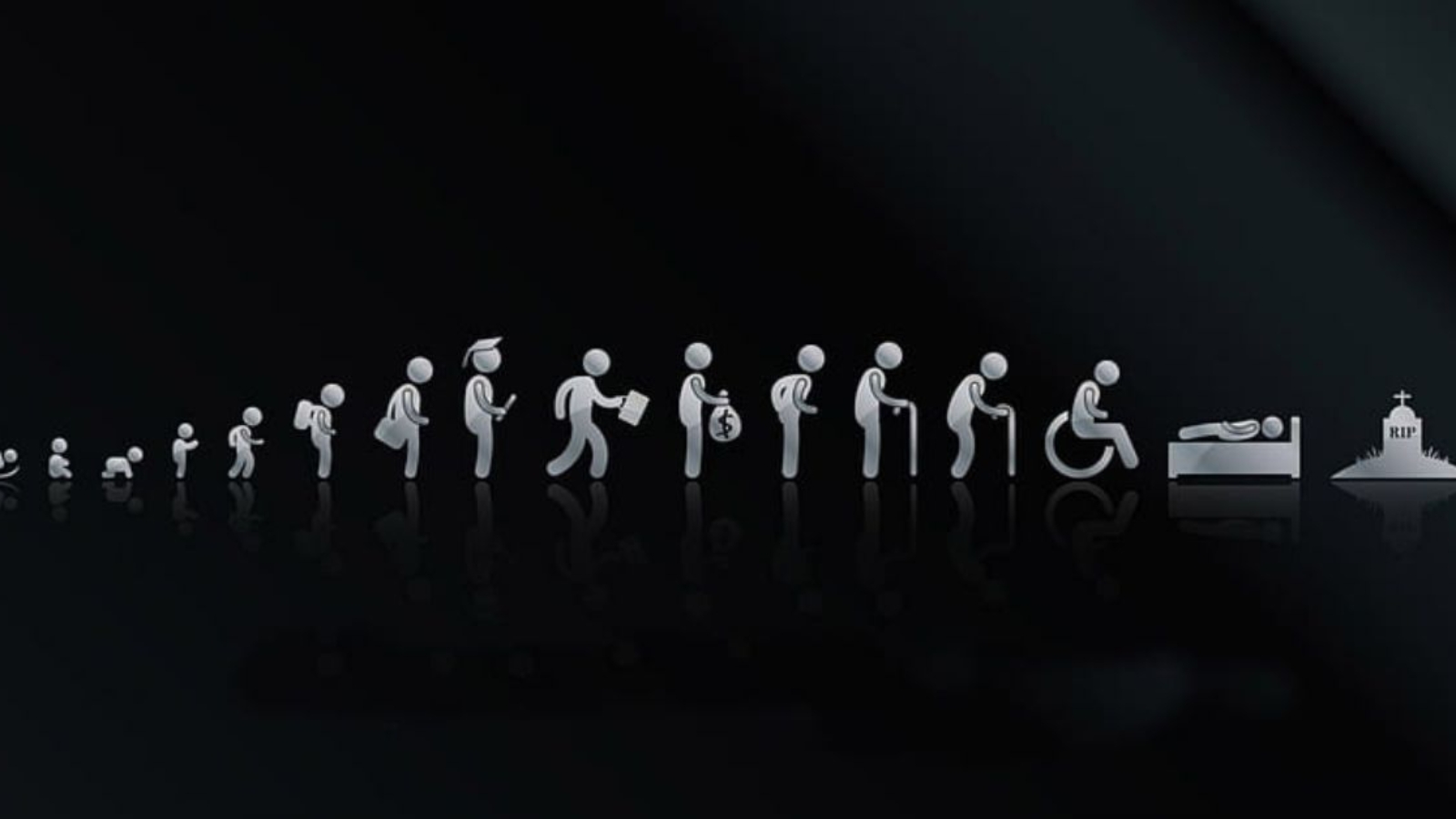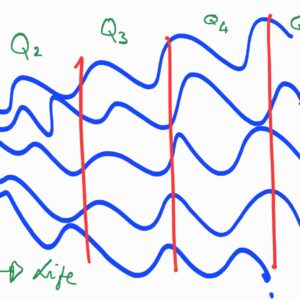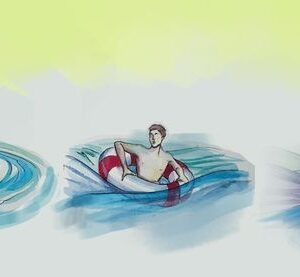History has been a timeline of “events”. Civilizations, trade, wars, explorations, discoveries, inventions etc are used individually or clustered as points of reference to develop, understand and explain events for the periods for which we seek insights into. To quote an example “ science” has been a tool of change in human history (from ancient Plato through the new scientific revolution – attributed to Galileo since 1630s), or later “technology” is an eventful history maker. (they are though intrinsically connected).
The timeline (or era) of history, with the advent of accelerated inventions of technologies in society in the last two decades, has shorter time-spans of eventful happenings that makes ripples of faster change, compared to the slow happenings arranged over a longer period of years in the previous centuries. One of the simple ways to look at it (especially from the thought of the topic of present discussion- listening) is to place people in Generation boxes (Gen Box) by virtue of the year of birth.
“Information” “Instant Connectivity & information”
Newspaper Gen Radio Gen TV Gen Computer Gen Internet Gen Mobile Gen Google Gen Android Gen Whats app Gen
(One can modify this in any manner of logic and history!).
I designed this classification for the vital component of “ Information” that runs through all these generations, and as we start from Computer Gen we find that we are travelling beyond information to “instant connectivity”. One way of understanding “listening” is first to place ourselves in an appropriate gen box. Then look into the Gen Box of the listener.
The Gen box is a representation of the realm of reality on which our behaviours are usually founded upon. It is natural and fair. People are often comfortable with others in the same Gen box, from a perspective of technology-based approach (though issues in communication happen at intra Gen box level too) than with gen boxes farther away from them. It’s important to accept and understand the “realms of realities” in other Gen boxes, for continued “basic commonness” for meaningful communication. Listening is the primary step in this acceptance.
For eg. a TV Gen mother talking to a post-google gen daughter. The behaviors of these two are naturally influenced by the context, values, habit, ethics (and many more) they have evolved through. The main point is that they vary a lot. Listening (the predominant function of successful communication) for one may not be the behaviour expected from the other. The perception that we possess is a product of many factors like the “gene Kit” we are handed over and the environment which nurtures us. To make a complex phenomenon simple, let us call it “Identity” of an individual.
Identity has more to with “becoming” , than with “being”, and it’s a process that starts right from birth. The mirror that our environment holds up to us determines who we become (Paul Verhaeghe, 2014: What about me?).
As we advance, two fundamental tendencies would seem to be typical of every living being: we want to be part of the greater whole, and at the same time we long for independence.
Revisiting the earlier example of the TV-mother and Google-daughter, now, in addition to the Gen Box, it is growing to the interaction of two identities. It is in this situation listening warrants more care from the communicators. The speed of the technological changes (and hence growing diversity in gadgets), identity (in terms of “brands” over a growing market economy), communication (that attempts at connectivity at a physical level across the globe: now its only virtual!) all have created a new “global civilization”. These were changing over a period of time, to the present neo-liberal era, in which consumer is the key. The present positioning of all Gen boxes are embedded within the global civilization – like it or not!
For eg. From “product” to “product-of-class (brand)” – may it be clothes, phones, bikes – the new Gen refers to the “brand” of a product rather than a product. It’s not the material but the brand that is message of people in the present day market- based society, especially the e-marketing with Amazon, Flipkart and so on.
How do two Gen boxes synchronize for a happy living? By Change.
It is not simply a question of making the “other” change; the painful truth is that we, too, will have to change ((Paul Verhaghe, 2014). Thomas Friedman, 2016 (Thank you for being late) also states the significance of changing or adapting to new technologies (in terms of Identity has more to with becoming) so as to be on Board of reality of the present day. Called as the Big Shift, they argue, is that we are moving from a long period of history in which “stocks” were the measure of wealth and the driver of growth – to a world in which the most relevant source of comparative advantage will be how rich and numerous are the “flows” passing through your country or community and how well trained your citizen-workers are to take advantage of them. It calls us to learn faster by working together and to pull out of ourselves more of our true potential, both individually and collectively. New Gen has the advantage of being born into this phenomenon. Others have to reinvent their skills and mindset to adapt for a “common minimum understanding”.
Listening (the key tool in communication) happens across generation boxes. Listening happening within a Gen box is usually uneventful, since the equations of the day generally bear similar meaning for all. While listening to the connected world around, find time to disconnect-to-connect with nearer, or learn to accept a new pattern of listening.
Accept intergenerational box differences and change wherever possible. We can’t exclusively blame the new gen for the “Hi Speed travel in the Information Motorway”, which science and technology offers, and we not coping with them. Ensuring values (listening rather than commanding plays a vital role) could strengthen the order and life, whichever generations we belong to.
“I indulged myself one evening, after a seminar in a dark conference room in a Mumbai hotel, to sit quietly in the roof-top restaurant for dinner, and watch the sunset fading over the Arabian sea. A young man and women sat on the table next to mine. Then another woman joined them. *Thoreau’s three chairs. I thought. Except that they had the Arabian Sea and a warm sunset outside, instead of Walden Pond and snow. The waiter lit a candle on their table, brought champagne in a bucket, and poured three flutes for them. They raised their champagne flutes , looked up from their smart phones for a few seconds at each other, said “cheers”, and quickly returned to their smart phones to find out what was happening in the world elsewhere. They didn’t seem interested in what was happening in each other’s hearts or minds.
Arun Maira, 2017.
Listening for well being: conversations with people not like us. P 103.
*Thoreaus”s three chairs: Henry David Thoreau, the American Philosopher wrote in Walden (1845) “I had three chairs in my house; one for solitude, two for friendship and three for society.” He could sit in one chair and watch the autumn outside, geese on the pond and the flurry of snow. He could listen to his own thoughts detached from others, while seasons changed.
I was pleasantly surprised when one of the Faculty in a college recently wrote interesting verses, stating that the person was in solitude and inventing the fineness of nature during that time: Thoreau’s first chair ! Many of us use the chairs; if not we need to! Search these chairs: find the Wordsworth, Bharatiyaar, Gandhiji, Mother Teresa, Changampuzha, Marie Curie, Nelson Mandela… and so many. Transform to them (to their mindsets). We need to place the chair for sometime so that we can internally listen to self, friends, family and society. Listening is life.
Listening is a purposeful thought process, Settings affect our thoughts. Eg. Silence improves our thoughts. It might be quite difficult to aspire for “thoughts” (and hence listening ) amidst the “noise” of the TV soap opera or sounds of bashing big beat songs (not the sound of music!).
In Reclaiming Conversation: The Power of Talk in a Digital Age, (2015), Prof. Sherry Turkle, at MIT argues that just as Thoreau needed these symbolic chairs in his cabin near Walden Pond, we need a similar social structure to communicate effectively. But cell phones are damaging our capacity for engaged conversation, she suggests, and thus our capacity for friendship and social connection.
For eg., Turkle argues that we avoid solitude, Thoreau’s first chair, by constantly checking our cell phones, despite the fact that we need this solitude to truly know ourselves. With cell phones, “we turn to other people to support our sense of self,” robbing us of the self-knowledge necessary for rich conversations! She claims that in the end, we are sacrificing conversation for connection!
Respect the Gen boxes, do not blame the Gen boxes, Learn to live with different Gen boxes, understand that “Identity” undergoes changes with time and technology, from utility to brand, realize conversations are important in the age of connectivity , disconnect and reconnect, have the three Thoreau’s chairs… Its listening, and an intergenerational technology perspective for a new order of harmony for the present day.
Did you listen today?












